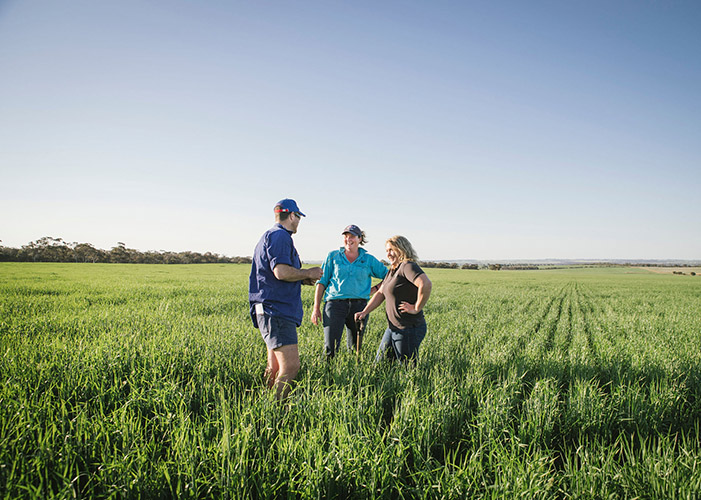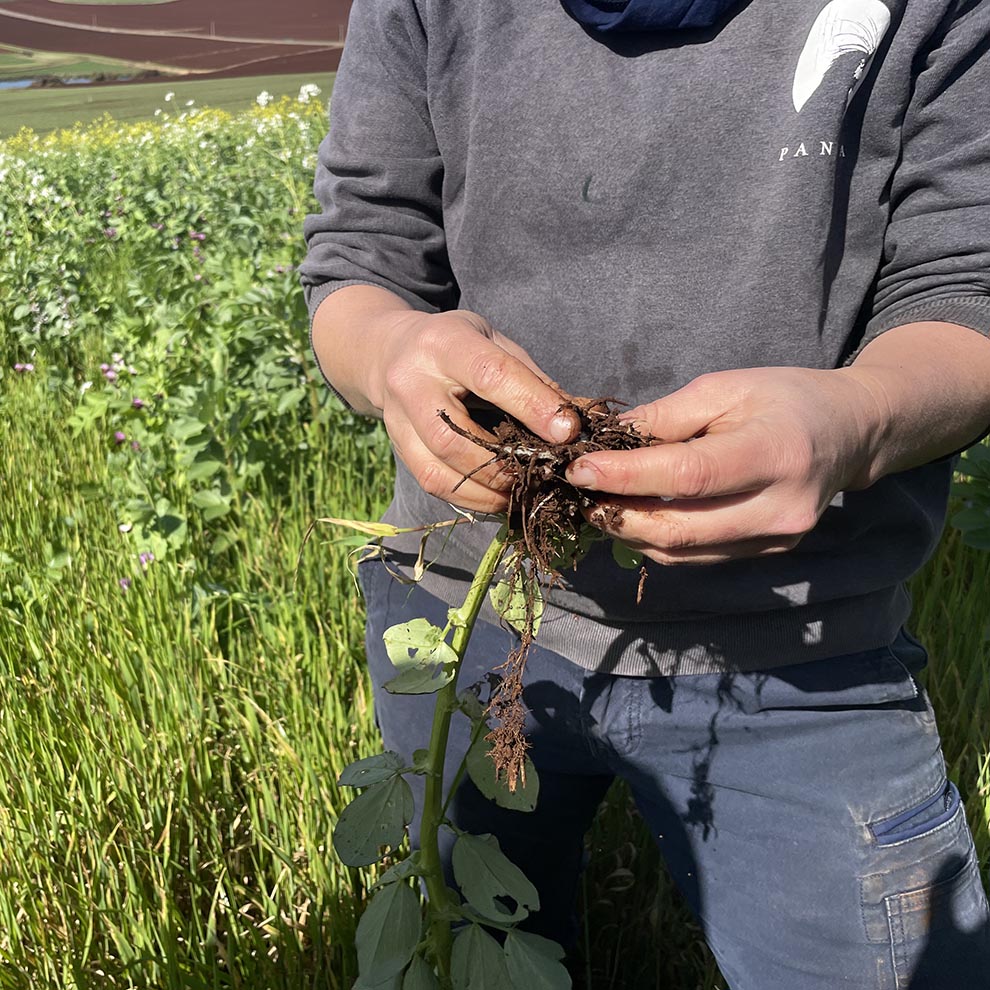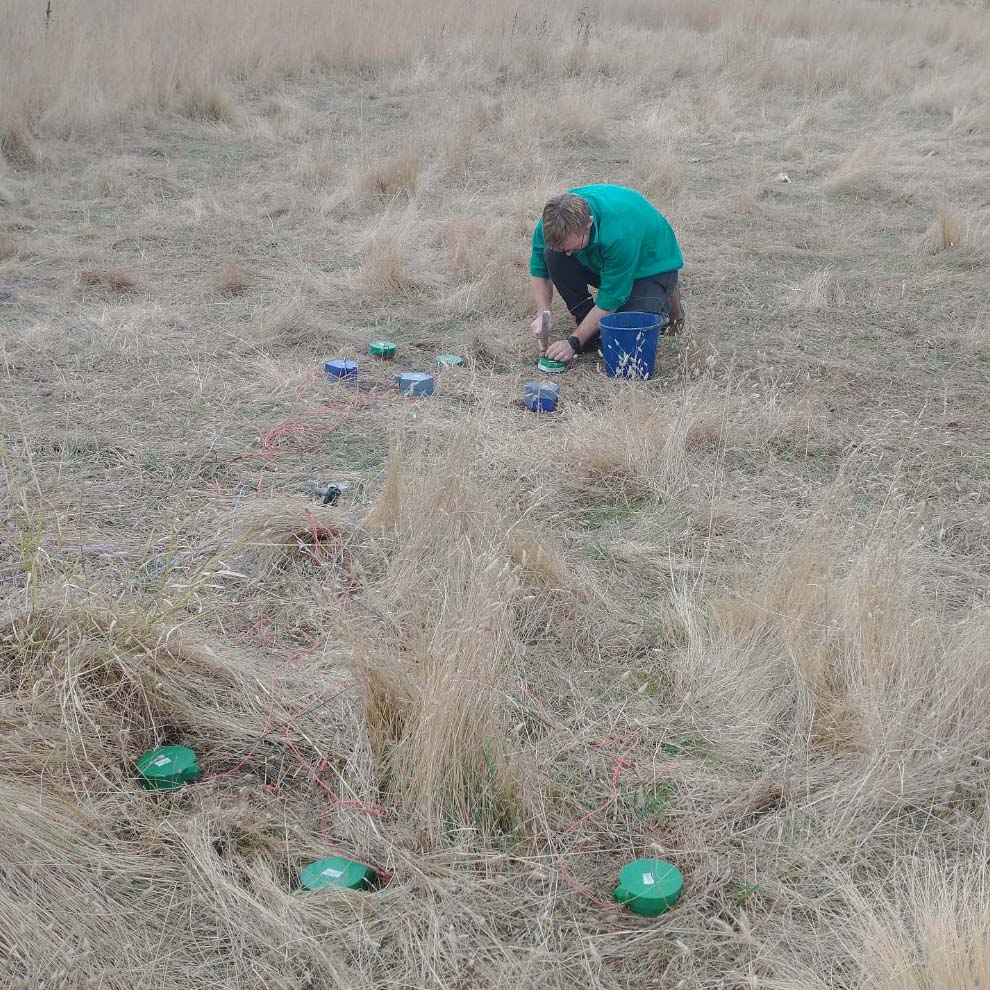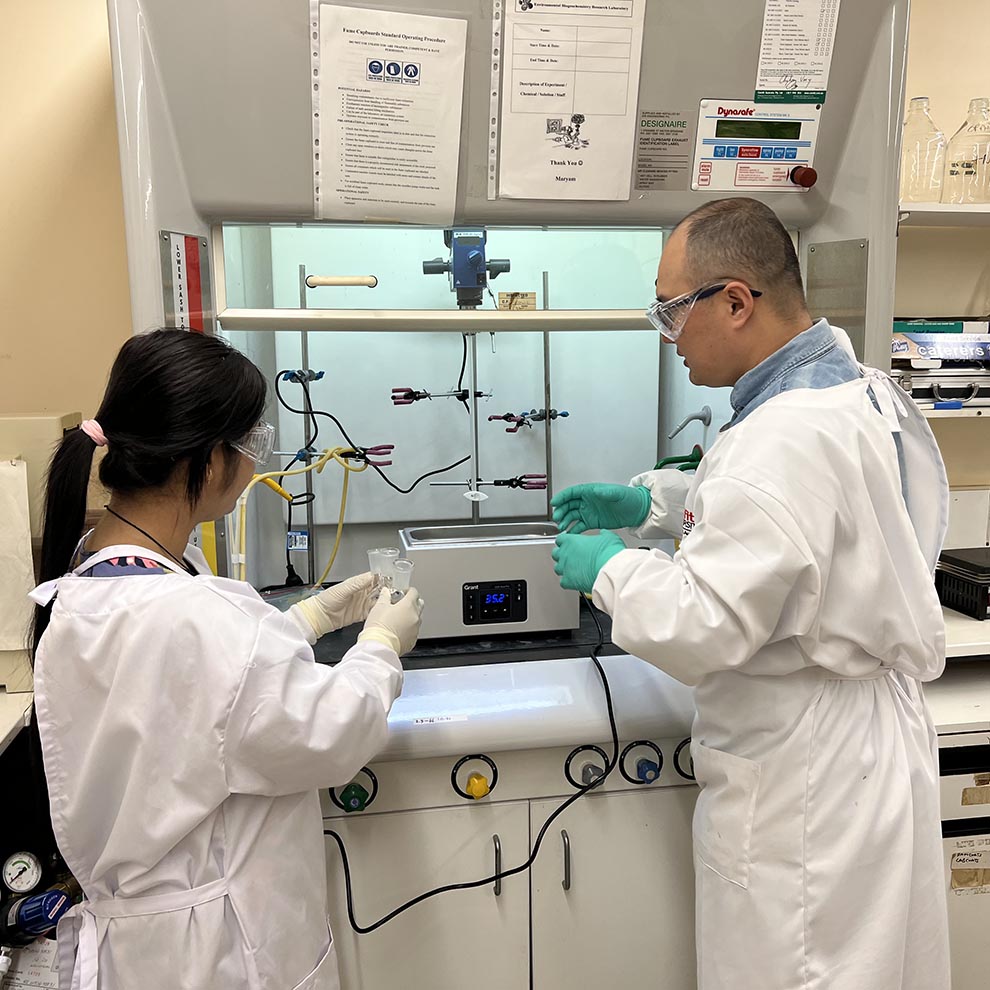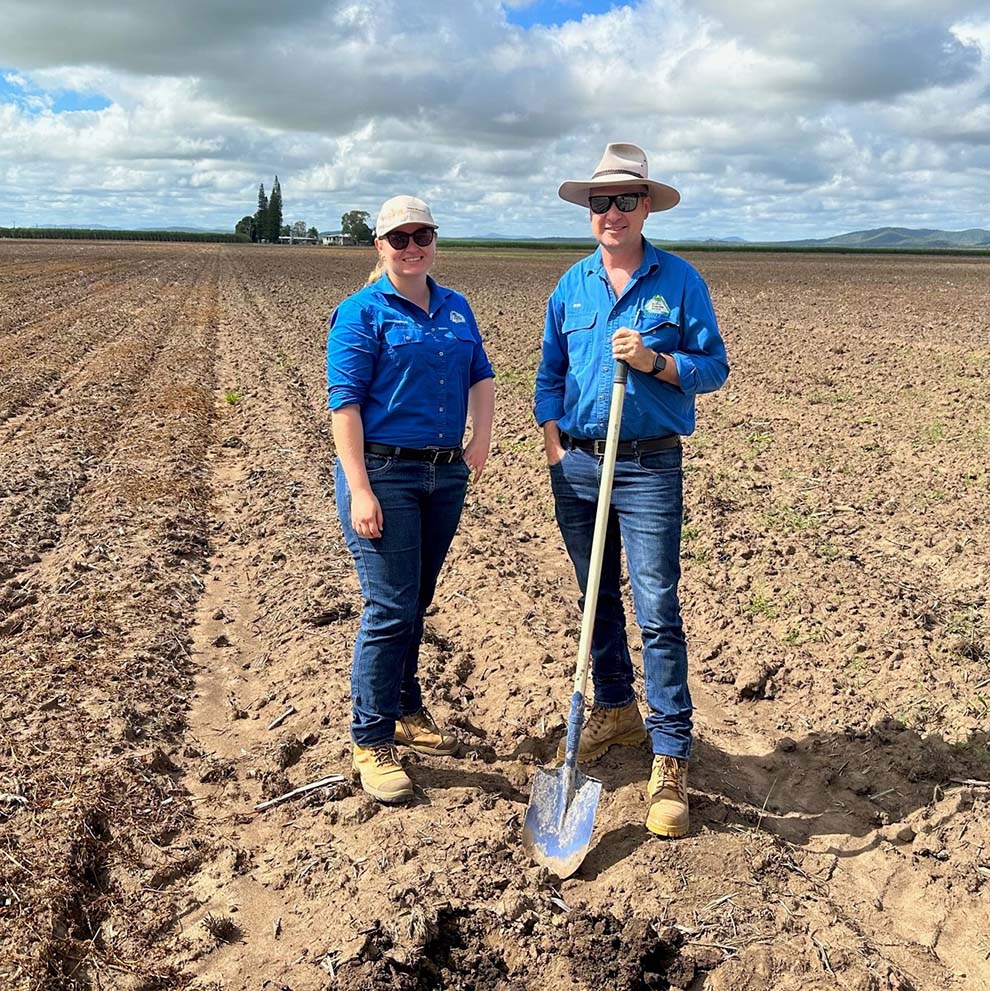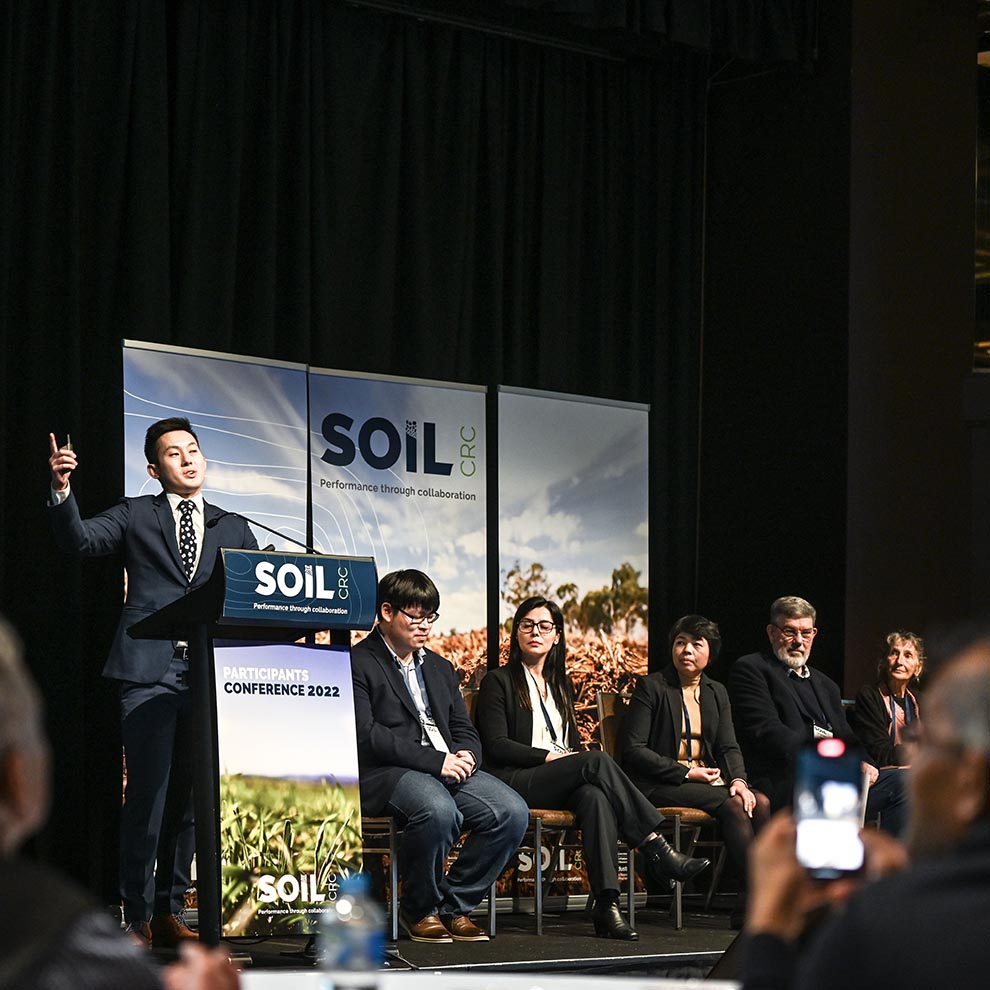A farmer might hear about a new practice or technology once in the newspaper or online, but that doesn’t automatically prompt action. They then need to start talking about it with other farmers and hear other opinions.
Dr Hanabeth Luke
CASE STUDY: Knowledge-sharing for good soil stewardship
Hundreds of millions of dollars are invested each year in agricultural science and technology, but adoption rates for many technologies remain quite low. Effective knowledge sharing processes between farmers, scientists and key knowledge brokers is essential for enhancing research adoption and good soil stewardship.
Dr Hanabeth Luke of Southern Cross University is leading the Soil CRC’s research effort to address the challenges and opportunities associated with sharing soil knowledge, with the aim of increasing farmer uptake of new research outputs.
This project will guide engagement, collaboration and knowledge sharing efforts by the Soil CRC and its participants, towards maximum effectiveness and impact on soil health, fertility and performance.
Southern Cross University is driving this research project, which involves four other universities and grower groups from four case study regions in Victoria, Western Australia, New South Wales and South Australia.
“The project is super-charging the knowledge-sharing and extension efforts of the grower groups as we work as a team to co-develop and trial a range of knowledge-sharing modes and strategies across the different case study regions,” Hanabeth enthused.
These range from digital strategies to new ways to run field days, drawing on the skills of a cross-institutional, cross-disciplinary research team to test and assess the effectiveness of these modes over time.
Embedded in this project is an understanding that knowledge-sharing processes need to be locally relevant and related to key challenges identified by farmers.
“We’ve empowered the grower groups—AIR EP in South Australia, West Midlands Group in Western Australia, Central West Farming Systems in New South Wales and Birchip Cropping Group in Victoria—to take the wheel and help steer the research course,” Hanabeth said.
The research builds on the findings of previous Soil CRC projects to deliver robust and useful data. This data shows that farmers require multiple ‘touch points’ to aid knowledge sharing and adoption. Hanabeth explained that a process of knowledge-sharing and demonstration needs to happen before farmers will develop the confidence to try something new.
This two-year project wraps up in late 2023 and will deliver a range of research outputs, including a knowledge sharing guide, recommendations for a training program, short ‘how to’ videos from our partner grower groups, and a journal paper on project design.
Program 1: Investing in high performance soils
Professor Catherine Allan – Project Leader Charles Stuart University
Program 1 uses economics, marketing and social science research to help farmers achieve their soil stewardship and profitability goals. Researchers and participants from 11 grower groups, seven universities and five industry partners, along with six PhD students, are supporting farmers to maintain the long-term integrity and fertility of soils for future generations.
In 2022-23, we continued to investigate financial market rewards for good soil stewardship and found agribusiness investors are increasingly aware of the importance of soil in investment decisions.
Additionally, the first round of six comprehensive social benchmarking surveys was completed, and a new project to re-survey north central Victoria, central west New South Wales and the West Australian wheatbelt was approved. We also gained new knowledge through four projects focused on innovation, and on-farm economics and risks.
Program 2: Soil performance metrics
Associate Professor Richard Doyle – Project Leader University of Tasmania
Program 2 seeks to better understand indicators of soil performance and how these can be used to enhance soil productivity. Twenty grower groups, six universities, two government research partners and 11 PhD students are developing tools linked to soil management products that will help farmers better manage their soils for increased productivity and profitability.
In Program 2, researchers continue to develop a range of technologies that will enable farmers to cost-effectively collect data to monitor soil performance. In the past year, their efforts have focused on finalising the development of the BILBY® (an underground communication node), the Bandicoot™ (an advanced penetrometer) and the QUOLL™ e-Nose (an electronic nose for smelling soil). The Soil CRC worked with legal and IP consultants IP Active to protect the IP, assess the market and broker contacts in the industry. We also secured MOUs with four potential commercial partners.
Field testing is underway to help improve these devices and generate commercial opportunities for their manufacture and sale to the agricultural sector.
Program 3: New projects for soil fertility and function
Professor Megharaj Mallavarapu – Project Leader University of Newcastle
Program 3 aims to develop new fertiliser formulations, pesticide delivery systems, soil enhancements, microbial carrier products and improved mechanisms for delivering these solutions to farmers. These pursuits collectively aim to enhance soil performance and productivity for agricultural practitioners.
Our researchers have made significant contributions to the field, with the successful synthesis of micro-lime and micro-gypsum products, along with the creation of innovative biochars and microbial carrier products.
One project has demonstrated the positive impact of biosolid application on soil health, which carries implications for sustainable agricultural practices and environmental conservation. Another project conducted meta-data analysis and mapping studies to provide insights into organic and clay amendments, resulting in improvements to sandy soils. This achievement has positive implications for enhancing soil fertility.
Program 4: Integrated soil management solutions
Dr Lukas Van Zwieten – Project Leader NSW Department of Primary Industries
Program 4 aims to develop cost-effective and sustainable solutions, driven by innovation, to build more productive and resilient soil. This will underpin a dynamic, sustainable and profitable Australian agriculture sector. Projects within Program 4 foster collaboration between 15 grower groups, seven universities, three government research partners and nine PhD students.
This year, our Australia-wide field trials supported nine field days and farm walks to help raise awareness of our research and demonstrate best soil management practices to growers.
Our projects are identifying plant-based and biological solutions to develop high-performing, more resilient soils. Researchers are field-evaluating cover cropping, mixed-species cropping and intercropping to improve soil. Our laboratory, glasshouse and field trial sites show that complex soil constraints need to be carefully diagnosed before successful amelioration can be achieved.
PhD student program
The Soil CRC’s PhD student program underpins our four research programs to build capability in the future of Australia’s soil research. In 2022–23 we welcomed eight new PhD students and saw one student complete their PhD, taking the total number of currently active students to 38 and the total number of completions to four.
Our expanding PhD cohort is now situated in 12 universities across Australia, is aged between 24 and 60+ years, covers all stages of candidature, and includes students from a wide range of disciplines and cultural backgrounds. As such, it brings together a huge wealth of knowledge, experiences, professional networks, and capabilities for our students to engage with and learn from.
In their words
“I love the opportunity to contribute to the growing body of research about soil science and social norms. I am grateful as I am being mentored and supported by incredible supervisors. I love that my PhD has enabled me to work closely with farmers, policy makers, soil officers and soil scientists.” Melissa Wales, Charles Sturt University



